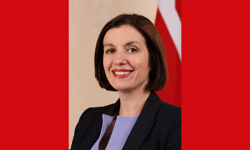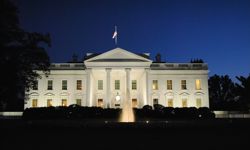
Speaking on behalf of the government in a House of Lords debate on the Bill this afternoon, Lord Sharpe of Epsom said it was “almost inconceivable” that “genuine journalism” would be caught within the threshold for criminal activity.
Lord Sharpe was speaking in response to an amendment moved by Lord Black of Brentwood designed to provide clarity and certainty by ensuring those working on articles or investigations for publication by recognised news publishers have a defence under the new regime.
Lord Sharpe said: “I want to reassure the media sector that the publication of an article that was critical of the UK government and which might incidentally be capable of assisting a foreign intelligence service, will not fall within scope of this offence. Nor would the handling of materials in the course of genuine journalistic activities fall within this offence, or the other offences in the Bill.
“For an offence to be committed under clause three, an individual would need to engage in conduct intending to materially assist a foreign intelligence service; or know (or should have known given the information they had at the time) it was likely that such conduct would do so.
“Now the government may profoundly disagree with the conclusions of some journalists, but we will not hide behind the criminal law to suppress genuine competing views and it is almost inconceivable that genuine journalism will be caught within the threshold for criminal activity.
He added: “The test of 'material assistance' is key. To be material, the assistance to the foreign intelligence service must be ‘important’, ‘considerable’ or ‘in a significant way’. As with all criminal offences, it will be the specific circumstances of the case that will be important and will be a matter for the prosecuting authorities, but we would expect prosecutions to involve those with known links to foreign intelligence services, including evidence of a relationship, tasking or payment.
“Absent these links, the government struggles to envisage even the most provocative piece of journalism meeting the threshold for the offence.”
Speaking earlier in the debate, Lord Black welcomed government amendments designed to protect journalism but said further clarity was needed to ensure journalism was robustly protected.
He added: “I have never believed that the new offences in this Bill would be used regularly to imprison journalists, and I do not believe that is what the government intends.
“But the risk is there. The uncertainty is there. The lack of clarity in the law is there. The chilling effect is there. The damage to the public interest as a result is there.”
Responding to Home Office Minister Lord Sharpe’s statement, News Media Association chief executive Owen Meredith said: “We welcome the government’s reassurances that journalism will not be criminalised under this new national security regime.
“Journalism has a critical role to play in our democratic society and it is vital that there are no unintended consequences of these new laws designed to keep us safe, which inadvertently chill media freedoms and that essential reporting.”
Keep up-to-date with publishing news: sign up here for InPubWeekly, our free weekly e-newsletter.











